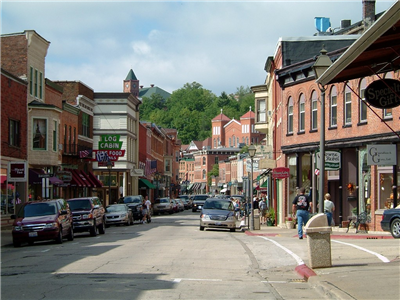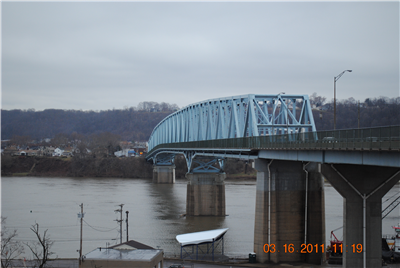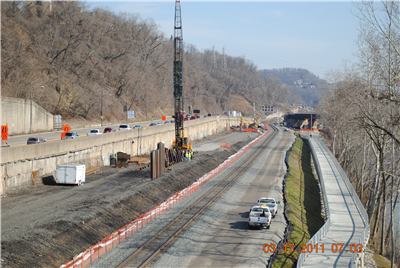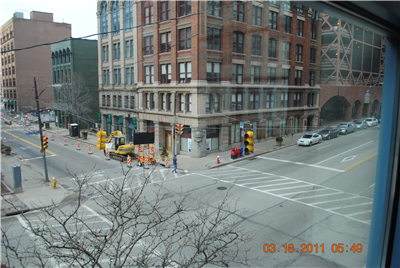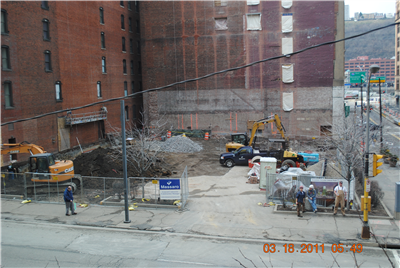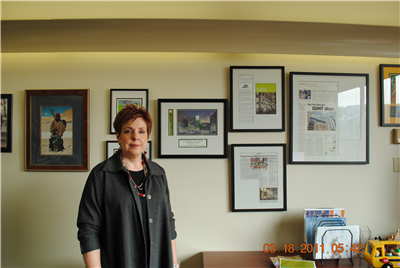10,000 Friends’ Initiative Provides Perspective on Pennsylvania Budget Debate
Every quarter 10,000 Friends of Pennsylvania convenes its Policy Advisory Council. The Council consists of interest groups and issue experts representing local government, technical and design professions, real estate development, environmental concerns and members of the 10,000 Friends Board of Directors. The Council’s purpose is to advise and counsel 10,000 Friends’ Board and staff on critical issues related to the organization’s mission. Discussion topics range from issues related to the organization’s current work, to timely research on policy issues under debate in the state capital and across the Commonwealth.
Governor Tom Corbett’s recent budget and budget address were the hot discussion at last week’s 10,000 Friends Policy Advisory Council. Pennsylvania’s revenue shortfall and the governor’s proposals to balance the budget will reverberate across Pennsylvania and impact communities and residents alike.
10,000 Friends’ CEO Jack Machek took a moment to discuss the Policy Council’s discussion, the implications for 10,000 Friends agenda and what we might see from Harrisburg as budget hearings begin.
What is 10,000 Friends perspective on the budget debate?
Smart growth policies and good land use decisions save money for government and taxpayers alike and that’s where the conversation is now. How can Pennsylvania save money?
We look to take a new approach to the debate. We are not in opposition to every cut, nor are we for every opportunity to raise revenue. We believe the state can improve efficiencies and increase the impact of public investments by being more strategic in how we invest our resources. The questions of how do we restructure revenue collection and how we invest are very timely.
Our focus will be to help frame a constructive debate. A critical component to the conversation is to make the case for public investment. While government can stand to be more efficient, we also need to realize that public investment creates significant opportunities to leverage private investment whether that’s in transportation systems, real estate development or industrial development.
Saving money, preserving resources and promoting efficiencies are all part of what we see as opportunities with the current budget. We need to do that through strategic investments so that we get the most bang for our buck. A few points that we see as critical to the conversation include:
First, it is critical to keep in mind that Pennsylvania has significant financial resources but we need to be prudent in how and where we invest.
Second, we need to recognize that prudent public investments provide a framework for economic success. Whether it’s the placement of infrastructure like roads or transportation systems that encourage real estate development or dollars for research and development at universities; public dollars can pave the way for economic development.
Third, location is critical to creating the right synergy and leverage for economic development to take off. That’s where land use decision making and supporting systems of local governments’ services provide a foundation for the private sector.
We hope to encourage a more strategic approach in this process; it’s not just about cutting here and taxing there. We need a system that promotes efficiency, while conserving our natural and fiscal resources while continuing to invest in our communities.
What were the Policy Council impressions of the budget proposal?
The Policy Council brings a diverse and bipartisan point of view to the conversation. The diversity of the council comes from the variety of experiences and organizations at the table. The bipartisanship comes from representation from both sides of the aisle. Members bring a lot of substance and balance to the discussion, which places us in a unique position. Members tend to be thoughtful and pragmatic.
One key recommendation from the Policy Council was to emphasize that land use decisions need to be at the center of the budget conversation. Obviously, land use is not a sexy topic when compared to, say, cutting university funding, but it certainly is an issue that needs to be a part of the budget consideration process because it is integrated in all that we do. Ancillary costs are associated with many decisions that we make with state resources. From transportation to school construction or rehabilitation, park improvement and the placement of water and sewer lines, these are investments that, at their core, are always driven by land use decisions. Targeting those decisions helps us to align investment and reduce layering on future costs. If we don’t target our expenditures, we create an unsustainable funding situation.
A second recommendation developed by the council is that the truth in budgeting needs to made clear. That is, that while the state might not be increasing taxes, costs will trickle down to other levels of government, be it school districts or local governments.
Finally, there is a legitimate case for strategic public investments. When the true costs of infrastructure are figured into the overall public equation, a more balanced investment strategy needs to be developed. This includes the need to look how and where we obtain revenue as well as where we make budget allocations.
How will the budget impact the Commonwealth’s communities?
People need to be vigilant and engaged in this process because the Governor’s budget is just a starting point for the discussion. We saw proposed cuts to higher education and public education out of the gate, but we might see changes as the results of tradeoffs in the coming months. The other thing to consider for local communities will be if we make cuts at the state level, will local communities be willing to shoulder some of the impact in order to maintain a service or a program.

